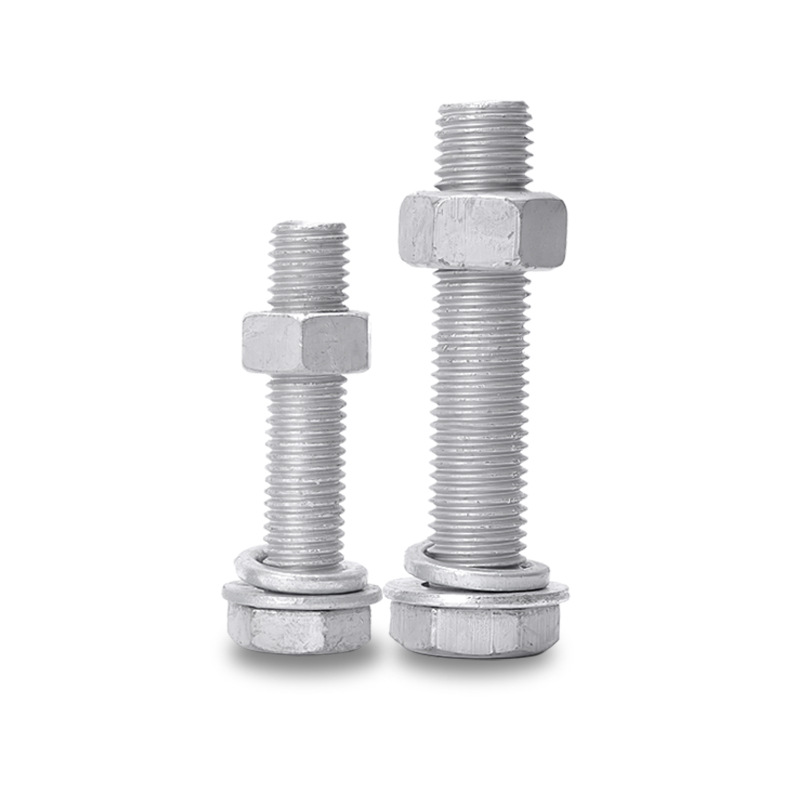

concrete fasteners
Kas . 16, 2024 23:58 Back to list
concrete fasteners
Understanding Concrete Fasteners Types, Applications, and Best Practices
Concrete fasteners play a pivotal role in construction and engineering. Designed to provide strong and reliable connections in concrete structures, these fasteners are indispensable in various applications—from residential buildings to commercial projects. In this article, we will explore the different types of concrete fasteners, their usage, and best practices for installation.
Types of Concrete Fasteners
There are several types of concrete fasteners, each tailored for specific applications and conditions
1. Expansion Anchors These are one of the most common types of concrete fasteners. Made from materials such as steel or stainless steel, expansion anchors expand against the walls of a pre-drilled hole when a screw or bolt is tightened. They provide great pull-out resistance and are ideal for heavy loads. Common types include sleeve anchors, wedge anchors, and drop-in anchors.
2. Concrete Screws Also known as tap-con screws, these fasteners are designed specifically for directly fastening items to concrete and masonry. They feature a sharp thread that allows them to tap into the concrete as they are driven in, eliminating the need for expansion. Concrete screws are ideal for lighter loads and are easy to install.
3. Chemical Anchors These fasteners involve a two-part epoxy or adhesive that is injected into a drilled hole along with a threaded rod or rebar. The chemical reaction creates a strong bond, making them suitable for applications where high loads and harsh conditions are expected. Chemical anchors are often used in structural applications, such as securing rebar in concrete.
4. Post Installed Anchors Designed to be installed after the concrete has cured, post-installed anchors include varieties like through-bolt anchors and threaded rod systems. They offer versatility in applications but typically require precise drilling and installation techniques.
5. Rail and Track Fasteners Used primarily in railway and industrial applications, these fasteners secure rails to concrete sleepers or slabs. They are designed to withstand dynamic loads and vibrations.
Applications of Concrete Fasteners
Concrete fasteners are widely used across various industries. Here are some common applications
concrete fasteners

- Building Construction Concrete fasteners are essential for attaching structural elements such as steel beams, framing, and flooring systems to concrete walls or slabs. - Retail and Commercial Spaces Fasteners are used for mounting fixtures, signage, or shelves to concrete walls, ensuring they can withstand the weight and stress over time.
- Infrastructure Projects In bridges, tunnels, and highways, concrete fasteners secure components and infrastructure systems that must endure significant forces.
- Industrial & Manufacturing For machinery and heavy equipment, sturdy fasteners are crucial for ensuring they remain firmly anchored during operation.
Best Practices for Installation
1. Choosing the Right Fastener Selecting the appropriate type of fastener for your specific load requirements and environment is crucial. Consider factors like load type (static or dynamic), exposure to elements, and the type of concrete.
2. Drilling Properly Ensure that the holes you drill are clean and to the specified diameter and depth. Use a hammer drill for better penetration, and clean out the hole to remove dust and debris before inserting the fastener.
3. Installation Techniques Follow the manufacturer’s instructions closely during installation. For expansion anchors, ensure that the fastener is correctly seated and that the bolt is tightened to the proper torque specifications.
4. Regular Inspections After installation, periodically inspect fasteners to ensure they are not loosening or deteriorating. This is especially important in heavy load applications and environments with vibration or exposure to moisture.
Conclusion
Concrete fasteners are a cornerstone of modern construction, providing the strength and reliability needed in various applications. By choosing the right type and following best practices, builders and contractors can ensure that their structures remain secure and durable over time. Understanding the different types, applications, and installation techniques of concrete fasteners is essential for anyone involved in construction or engineering projects.
Latest news
-
Premium Self Tapping Metal Screws: Strong & Easy Install
NewsAug.02,2025
-
Premium Fasteners Manufacturer | AI-Driven Solutions
NewsAug.01,2025
-
Hot Dip Galvanized Bolts - Hebei Longze | High Strength, Corrosion Resistance
NewsAug.01,2025
-
High-Strength Hot Dip Galvanized Bolts - LongZe | Corrosion Resistance, Custom Sizes
NewsAug.01,2025
-
Best Self Tapping Screws for Drywall - Fast & Secure Installation
NewsJul.31,2025
-
High-Strength Hot Dip Galvanized Bolts-Hebei Longze|Corrosion Resistance&Customization
NewsJul.31,2025

